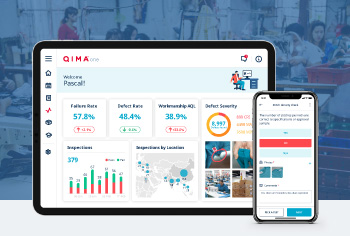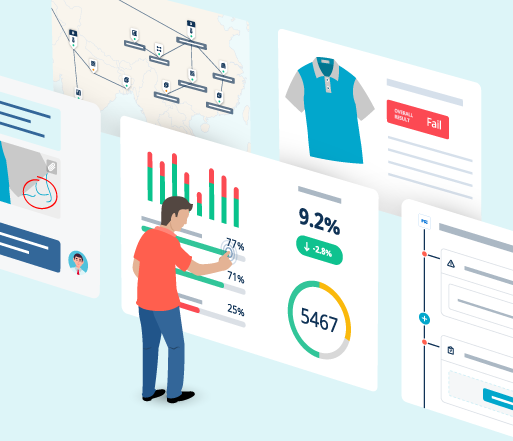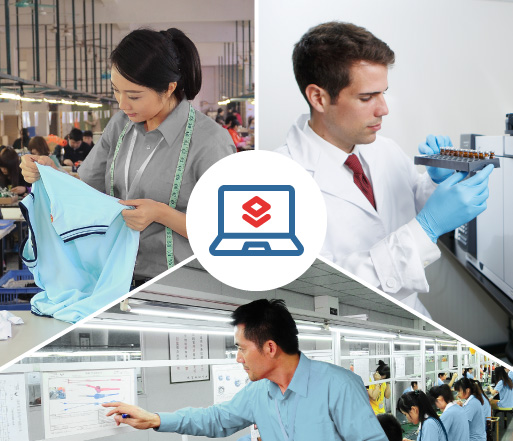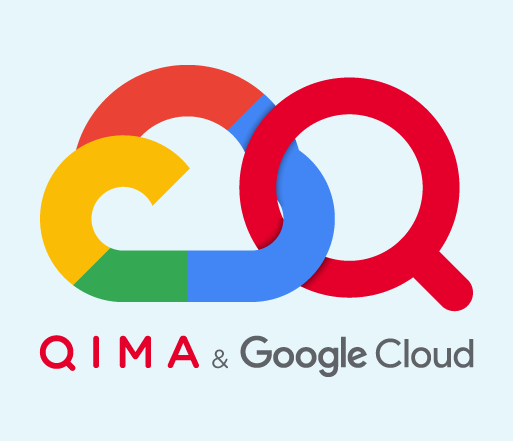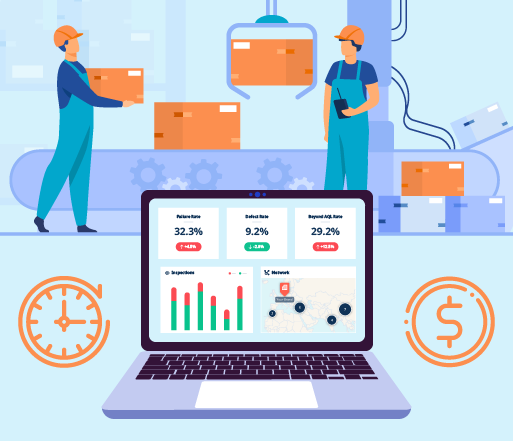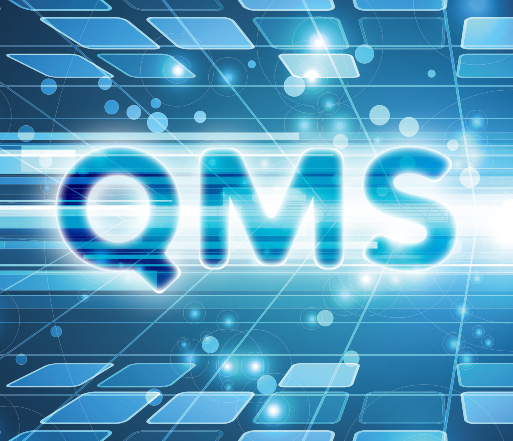
Articles
Why is a modern quality control management software vital for your business?

Articles
Why is a modern quality control management software vital for your business?
Articles
Why is a modern quality control management software vital for your business?

Keep up-to-date with the latest supply chain insights.
When looking for ways to improve your quality management system (QMS), the question you need to be asking is: how do I put my supply chain in the best position to act on problems before they become catastrophes?
It is, after all, well-known that a proactive approach is much better than a reactive one. An ounce of prevention is worth a pound of the cure – and every cent spent on preventing problems will save you money and time on trying to fix them.
In this article, we will explore the importance of a seamless quality management system software, that will help you take control of your quality control operations and build an effective, safe, and ethical supply chain.
The Modern Quality Management System (QMS)
Fundamentally, an effective QMS should achieve consistent product quality, compliance, and transparency at every stage of production. The first step towards that is establishing consistent – and consistently understood – customer-oriented goals across the supply chain.
To achieve those goals, multiple operational processes can be executed as part of a company’s quality management system, including:
- Quality assurance planning
- Raw material sourcing
- Factory selection and auditing
- Product line inspections
- Market delivery preparation
Evolving QMS Technology
The concept of quality management, in some shape or form, has been around since pre-industrial times. During the 20th century, ideas of quality management have gone through many transformations, and the publication of the original ISO 9001 standard in 1987 was a major landmark.
In today’s digital age, quality management is inextricably linked to online capabilities and data-oriented technologies. In the past decade alone, cloud-based software has helped supercharge every aspect of quality management by streamlining data storage, analysis, and communication across supply chains of all sizes.
Today's cutting-edge quality management software goes even further, with the capability to target specific areas within the manufacturing process. This includes platforms specifically designed with a focus on Testing, Inspection, and Certification (TIC) management, which is vital for any quality management system.
Why an Effective, Continuously Improving QMS is Vital for Your Business
At first glance, the concept of a quality management system, with its many principles and requirements, may seem daunting. You might even start to wonder if your business needs an actual QMS, especially if you’re operating on a relatively small scale.
However, according to the ISO 9001:2015 standard, organizations should adhere to the standard if they:
- Need to consistently provide products and services that meet customer,statutory, and regulatory requirements
- Aim to enhance customer satisfaction through the effective application of the QMS
Simply put, the above means that a quality management system is instrumental in consistently delivering quality products and services, which in turn improves customer satisfaction.
Therefore, a QMS is necessary for any business that markets products or services, regardless of its size, industry, or specialization.
Continuous Improvement and Adaptation
A quality management system isn’t a “fire and forget” solution,established once and never addressed again. To achieve its primary objective of ensuring continued customer satisfaction, a QMS must also continuously improve in alignment with the evolving needs of your business and the changing environment it operates in.
Any changes to keep your quality management system up to date must be based on timely and informed decisions. Decisions, in turn, must be rooted in reliable and accurate data, collected at every step of your supply chain, ideally in real-time, and readily available to all relevant stakeholders. This is why forward-thinking companies have come to rely on digital technologies and integrated platforms to help improve QMS.
Benefits of an Effective and Flexible QMS
Companies with effective and flexible quality management systems are positioned to ensure customer satisfaction by delivering products that are of consistent quality, safe, and sustainable:
QMS help you achieve consistent quality by ensuring that raw materials, components and final products meet your specifications. Manufacturing processes are continuously monitored and improved, and any production issues are investigated and addressed before they escalate.
Safety and regulatory compliance is accomplished by staying on top of your production standards to make sure they are aligned with the latest regulatory requirements. QMS software will maintain a safety testing program and trace any issues to the source in case of product recalls.
Finally, a QMS is instrumental in sustainability and ethical sourcing practices. The system can be used to roll out ethical and environmental requirements, monitor adherence, implement corrective action plans, and monitor improvement.
Fast-track your digital transformation with QIMAone.
Get a live demo
Fast-track your digital transformation with QIMAone.
Get a live demoHow Can QIMAone Help?
QIMAone is an intelligent quality control and compliance platform that offers a variety of tools you can leverage to improve your quality management system, including:
- Real-time data collection from every step of your supply chain
- Intuitive dashboards with actionable insights and a 360-degree view of your sourcing network
- Customizable inspection checklists specific to your product and market
- Access to QIMAone Academy, a library of e-learning materials on quality and compliance best practices, and more
Furthermore, we provide ways to develop your quality management system that build on your existing resources, without the need to scrap or fully overhaul your existing supply chain management platform. To achieve that, we made sure that the QIMAone quality control and compliance software can be integrated with existing management tools and platform, such as Product Lifecycle Management (PLM), Enterprise Resource Planning (ERP), and Warehouse Management Software (WMS).
Discover the many features of QIMAone’s QMS software and see how you can improve your quality management system today.
Want to see our platform in action? Learn more by scheduling a demo of QIMAone.
Most Popular Articles
Corrective Action Plans 101: Your Basic Guide to Ensuring Supply Chain Quality Excellence
The Benefits of a Data-Driven Supply Chain
6 Benefits of Supply Chain Visibility
How to Implement a Quality Management System
Simpli Home: Ensuring product quality and compliance with supply chain technology
7 Effective Ways to Improve Your Quality Management System
Supply Chain Visibility: Complete Guide for Supply Chain Managers
Boost Quality Control with Supplier Performance Metrics
